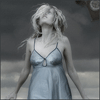

Assunta Adelaide Luigia Modotti was born in Undine, Italy on 16 August 1896. Daughter of an Italian machinist who immigrated to the United States in 1906. After completing her education in Italy and Austria, Modotti worked in an Undine textile factory before joining her father in 1913 in San Francisco, where she worked as a seamstress and dressmaker in a silk factory. In 1917 Mottotti made her debut as an actress. She married poet and painter Roubaix de l'Abrie Richey and moved to Hollywood the following year. Whilst working as a model and actress in several Hollywood films in 1920 and 1921, Modotti met Edward Weston and began a romance with him around 1921. Her husband died in Mexico City the next year, prompting her first visit to the country she would return to photograph in 1923, first as Weston's assistant and apprentice and later as his professional partner. She and Weston had an intimate relationship of mutual influence, working together regularly from 1922 to 1930 in San Francisco and in Mexico, where they had studios in Tacubaya and Mexico City. She published her images, which included portrait studies, in the magazines Mexican Folkways and Formas. Modotti became a revolutionary activist in the early 1920s and developed strong ties with members of the Mexican Artists Union group, including Manuel Alvarez Bravo, Diego Rivera, Charlot, Orozco, and Siqueiros. In 1927 Modotti joined the Communist Party, and her political affiliations and activities caused her to be deported from Mexico in 1930. She abandoned photography for political activism moving to Moscow, where she worked for International Red Aid, a relief organization from 1931 to 1934. Modotti moved to France in 1934 and worked in Madrid and Valencia, Spain, from 1935 to 1938. She was a reporter for the Republican newspaper Ayuda and worked for revolutionary movements and the International Red Cross from 1936 to 1938. She returned to Mexico City in 1939, photographed, travelled, and continued her political work until her death in 1942. Modotti's work has received deserved attention in recent years after a long period of neglect. Her photographs were included in the 'Women of Photography' touring exhibition of 1975, and she was the subject of a two-woman show with the painter Frida Kahlo in 1982-1983 in London and New York City. She has been honoured by one-woman shows at the Museum of Modern Art in New York City (1977), Festival Internazionale delle Donne in Arezzo, Italy (1978), and the Museum of Fine Arts in Lodz, Poland (1980). Many of her most powerful images, such as Mexican sombrero with hammer and sickle, are modern in aesthetic, but political in content. She travelled throughout Mexico recording murals, cultural and religious icons, women in Tehuantepec, and workers at their daily tasks. Modotti was a revolutionary in all matters, from her political activism to her modern and high profile personal life, and her elegant and forthright photography.
więcej
Informacje dodatkowe o Tina Modotti:
Wydawnictwo: angielskie
Data wydania: b.d
Kategoria: Albumy
ISBN:
Liczba stron: 0
Kup książkę Tina Modotti
Sprawdzam ceny dla ciebie ...
Cytaty z książki
REKLAMA
Zobacz także
Tina Modotti - opinie o książce
Inne książki autora
Outlaw Culture
0
According to the Washington Post, no one who cares about contemporary African-American cultures can ignore bell hooks' electrifying feminist explorations...
We Real Cool Black Men & Masculinity
Zobacz wszystkie książki tego autora
0
"When women get together and talk about men, the news is almost always bad news," writes bell hooks. "If the topic gets specific and the...















Chcę przeczytać,